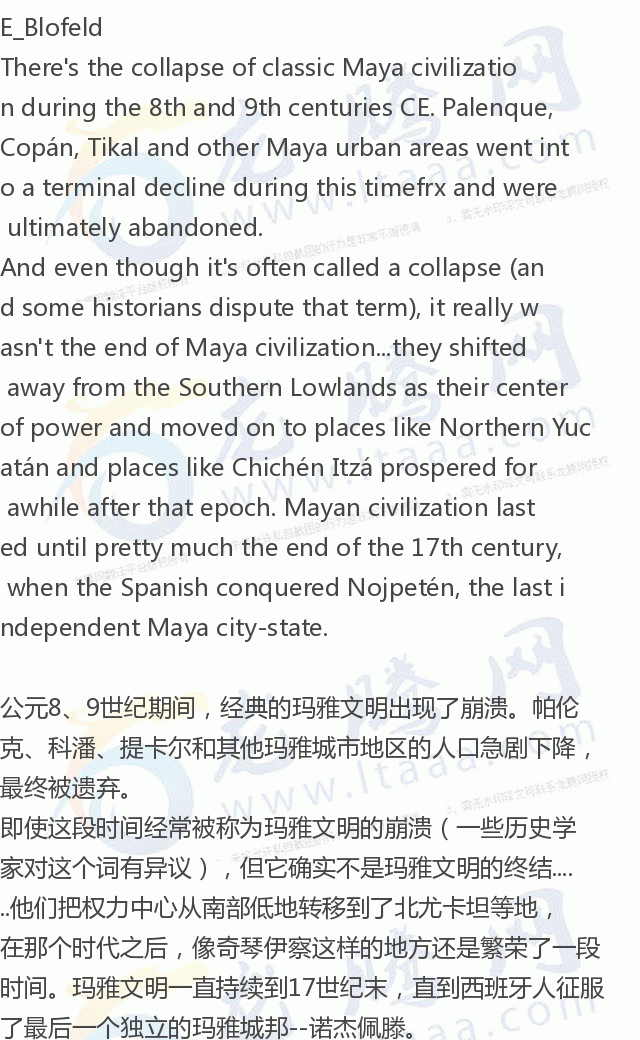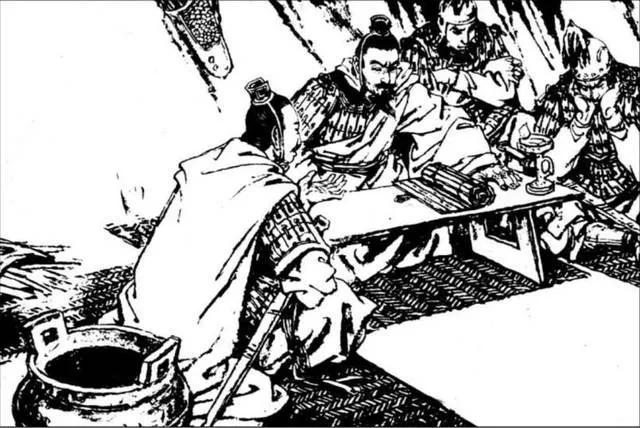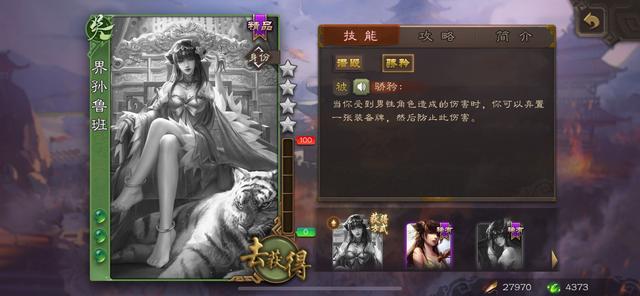正文翻译

Everyone knows about the “Dark Ages” that followed the collapse of the Roman Empire in Europe, did other cultures have their own “Dark Ages” too?众所周知欧洲在罗马帝国崩溃后进入了“黑暗时代”,其他文化也有自己的“黑暗时代”时刻吗?The only ones I could think of would be the Dark Age that followed the Bronze Age Collapse in the Eastern Mediterranean and the period of turmoil that followed the An Lushan Rebellion in China which was said to have ended China’s golden age, I’m no expert in Chinese history so feel free to correct me on that one. Was there ever a Dark Age in Indian History? Japanese? Mesoamerican?我唯一能想到的就是东地中海青铜时代崩溃后的黑暗时代,以及据说结束了中国黄金时代的中国安禄山起义后的动荡时期,我不是中国历史专家,所以请随时纠正我的错误。印度历史上有过黑暗时代吗?日本人呢?中美洲人呢?
评论翻译

PiniataLad47Hell, Mayans still exists today- according to Wikipedia, There are around 6 million,. So unlike what many may think the ethnic identity never disappeared unlike many others.嘿,玛雅人今天仍然存在-根据维基百科,大约还有600万人。因此,与许多人可能认为的不同,玛雅人的种族身份从未像其他许多人那样消失。MagnoliaLiliifloraI watched a report not long ago about Mayan culture in Guatemala that was VERY interesting. There are definitely still people who identify ethnically as Mayan and who speak Mayan dialects, and try to keep other forms of Mayan culture alive within their communities. A bit more anecdotal but my husband and I did a tour of Tulum and our tour guide identified herself as Mayan in heritage and talked a little bit about it. She was a very intelligent and interesting woman!不久前我看过一篇关于危地马拉的玛雅文化的报道,非常有趣。当然,仍然有一些人认为玛雅人具有种族特征,他们讲玛雅方言,并试图在他们的社区内保持其他形式的玛雅文化的活力。此外还有更多的轶事,我和我的丈夫参观了图卢姆,我们的导游认为自己是玛雅后裔,并和我们谈到了这一点。她是一个非常聪明有趣的女人!

Alpha_Bit_PoopYeah a friend from Yucatan is Mayan but she only knows all the dirty words in the language. At least they will live on!是的,我在尤卡坦的一个朋友是玛雅人,但她只知道玛雅语言中所有的脏话。不过至少它们还能延续下去!nixseeI live in Guatemala, where there's surely the largest population of Mayans in the world. I work with many purely indigenous Mayan communities. They're 3rd class citizens here, after the mixed middle class and the Spanish pure-bred upper-class/owners.我住在危地马拉,那里肯定有世界上最多的玛雅人。 我与许多纯粹的土著玛雅社区合作过。 他们是这里的第三等级公民,仅次于混合中产阶级和西班牙纯种的上层阶级/所有者。Voter_McVoteyI was helping a couple at my retail job, mother and son. She spoke what was obviously not Spanish. I asked the son what language it was. He said it was an old Maya language. It was cool to hear it in person. Language is cool!我在做我的零售业工作时帮助过一对母子。她说的显然不是西班牙语。我问儿子那是什么语言。他说这是一种古老的玛雅语。能亲耳听到这么古老的语言,真是太酷了。语言是很酷的!PiniataLad47I've never had the opportunity to hear it in person, damn that's interesting.我还没有机会亲自听到过,淦这也太有趣了。wbruce098Yep, a friend of mine was a missionary in southern Belize, and brought me out there once. Lots of indigenous Mayans still living in the bush there. He just kinda takes US church money and helps people out over there building houses, repairing the school, etc cuz everyone’s dirt poor out there.是的,我的一个朋友曾在南伯利兹当过传教士,曾带我去过那里。许多土著玛雅人仍然生活在那里的灌木丛中。他只是拿了一些美国教堂的钱,帮助那里的人建造房子,修理学校等,因为那里每个人都很穷。stefanlikesfoodI've met a lot of Mayans, specifically in western Belize there is still tribes. Speak a lot of English and their native languages. Really welcoming people, at least the ones I met我见过很多玛雅人,特别是在伯利兹西部,仍然有部落。大部分讲英语和他们的母语。也很热情好客,至少是在我见过的人里

sodemietersThis is the late bronze age collapse right? Maybe the greatest darkage of all time.这是青铜时代晚期的崩溃对吧? 可能是有史以来最伟大的黑暗时期。


dylan6091I don't know much about ancient civs. Who were the sea people? Weren't they Mycenians?我不太了解古代文明。海上民族是谁?他们不是迈锡尼人吗?



sodemietersMass migration for whatever reason. They even ended up in Ireland according to the book of invasions不管海上民族出于什么原因大规模移民。根据《入侵》一书,他们甚至最终来到了爱尔兰theorange1990Most likely due to famine很可能是因为饥荒sodemietersAgreed, and who knows what caused the famine. Climate change; collapse of agricultural systems; Ajax, Achilles, Diomedes and Odyseus pillaging the region :)同意,不过谁知道是什么引起了饥荒。气候变化;农业系统崩溃;或者是阿贾克斯、阿喀琉斯、迪奥梅德斯和奥德修对该地区的掠夺:)Billy1121I am reading that 1077 bc book and it is intereting. Only thing I don't get is how this collapse brought about the Iton Age. You'd think advanced trade and tech would lead to iron discovery and use, not a collapse and dark age.我正在读关于公元前1077年的书,它是有趣的。 我唯一不明白的是这场崩溃是如何导致铁器时代的。你会认为是先进的贸易和技术会导致铁的发现和使用,而不是一个崩溃和黑暗的时代。

DrozdMenschAs i know it was proto Greek civilization, not Greek exactly据我所知,这段时期说的是原始希腊文明,而不是希腊这个国家本身[dexed]"Proto-Greek" is a poor descxtor because it wrongly places classical Greece on a pedestal as the "true" Greece. The Mycenaeans were people who lived in Greece, spoke the Greek language, worshiped Greek gods, etc. They were Greek.The political organization was different from classical Greece, sure, but that doesn't mean they weren't Greek.“原始希腊”是一个糟糕的描述,因为它错误地只把古典希腊作为“真正的”希腊。迈锡尼人是生活在希腊、讲希腊语、崇拜希腊神等的人。他们就是希腊人。当然,这个政治组织不同于古典希腊,但这并不意味着他们不是希腊人。NarwhalNetworkCompletely agree with this, its helpful to distinguish how cultures within cultures can diverge for the sake of organization, its not helpful for say understanding how these individuals saw themselves. For example, we describe the Eastern Romans after the "collapse" as the Byzantine Empire because of their varied culture, customs and demographics compared to what most understand as the Roman Empire, but that culture fully saw themselves as Roman and were all intents and purposes were Romans.完全同意你说的,这种说法有助于区分文化内部的文化如何因为其组织而分化,但这对于理解当时这些人是如何看待自己的并没有帮助。例如,我们把 "崩溃"后的东罗马人描述为拜占庭帝国,因为他们的文化、习俗和人口结构与大多数人所理解的罗马帝国相比有很大的差异,但他们自己本身的文化完全把自己看成是罗马人,自己的一举一动所思所想都是罗马。


MansfromDaVinciThe Middle East and most of Asia went through a dark age caused by the Mongol invasions, the secondary empires like Tamerlane, followed by the black death. There was widespread settlement abandonment in 12-13th century North America for an unknown cause particularly in the Mississippi Basin. Slavery collapsed Central West African civilisations about the 15th and 16th century. The precolumbian Amazon Basin civilisations were annihilated by European plagues.中东和亚洲大部分地区经历了蒙古人入侵、帖木儿等次生帝国造成的黑暗时代,之后是黑死病。在12-13世纪的北美,尤其是密西西比盆地,出现了普遍的定居点废弃,原因不明。奴隶制大约在15-16世纪使中西非文明崩溃。前哥伦布时期的亚马逊流域文明被欧洲的瘟疫所消灭。Alpha_Bit_PoopMongols are like the 1200's Sea Peoples. Horse Peoples.蒙古人就像1200年的海上民族。马上民族。choma90Mongols were more like unified rampaging war machine. Sea peoples are unclear if they were a confederacy of pirate like civilizations or if the world had gone to shit so badly that there so many random bandits and pirates that the term "sea peoples" was coined to reffer to all that rabble.蒙古人更像是一台统一的狂暴战争机器。海上民族不清楚他们到底是海盗一样的文明联盟,还是世界已经乱了套,以至于随机的强盗和海盗太多,所以创造了 "海上民族"这个词,来指代那些暴民。iTransphobeThe Middle East is going through another dark age after the fall of the Ottoman empire.在奥斯曼帝国垮台后,中东正经历另一个黑暗时代。haleandheartlessYou're right. Fractured and warring. This will be seen as a dark period.你说得对。断裂和战乱。这将被视为一个黑暗时期。EowalasVarAttreI don't think that you understand what a "dark age" is. Dark ages are not a period of decline, but a period with a significant lack of written source. They are "dark" for us because we do not have as much information about them, not because the life was hard at the time.我不认为你明白什么是“黑暗时代。 黑暗时代不是一个衰落的时期,而是一个严重缺乏书面来源的时期。他们对我们来说是“黑暗的”,因为我们没有那么多关于他们的信息,而不是因为当时的生活很艰难。

GenghisKhanWayneWhen you say "Dark Ages," are you referring to the collapse of a civilization or a period when we went from knowing a lot about a civilization to suddenly having very little recorded history?当你说“黑暗时代”时,你指的是一个文明的崩溃,还是一个我们从了解一个文明到突然几乎没有记录的历史的时期?

sartrerianThere are potentially several in Chinese History.Depending on how you slice it, there’s the spring and autumn period during the eastern Zhou dynasty, which although philosophically and culturally vibrant, was a period of intense internecine violence.Then there’s the period of disunity between the Jin dynasty of the 3rd century all the way into the late 6th century (which ended with the ascendancy of the Sui dynasty). Though you wouldn’t be off base in putting the start date nearly a hundred years earlier with the fall of the Han. Either way, this one definitely counts as a dark age, at least when compared to the Western European standard.There’s also the five dynasties and ten kingdoms period between the tang and song dynasties in the 10th century, which was a full on shitshow, but maybe didn’t last long enough to qualify.中国历史上可能有几个黑暗时期。取决于你如何分割它,在东周的春秋时期,虽然在哲学和文化上充满活力,但这是一个激烈的内部暴力时期。还有就是3世纪的晋朝一直到6世纪末的分裂时期(以隋朝的崛起而结束)。虽然你把分裂的起始日期提前一百年,以汉朝的灭亡为起点也不为过。不管怎么说,这个绝对算得上是一个黑暗的时代,至少和西欧的标准相比是这样。还有10世纪唐宋之间的五代和十国时期,这也是一个混乱不堪的时代,但可能持续的时间不足以合格。rtb001There is a very clear distinction between the periods of strife in China compared to the dark ages of Europe after the Wall of the western Roman empire.In China, the periods of chaos always ended with a new dynasty reunifying the entire country, largely with the same form of government. The Han, Jin, Sui/Tang, Song, Ming, and Qing dynasties spanned over 2000 years, and sometimes there might be more than one hundred years of chaos in between the major dynasties, yet each time a very similar form of government and society becomes reconstituted. Absolute monarchy headed by an emperor, passed exclusively through male heirs (with only a single exception), using a vast confucian based beaucracy, with heavy use of eunuchs within the imperial household, usually worshiping the same mixture of buddhism/taoism religion, etc. Some of these dynasties were invaders from the steppes who took over China, yet they still ruled China in much the same way the first Han dynasty emperors did back in the 200s BCE. Even the language didn't change.That's the difference between China and western Europe. Once Rome fell, it never came back. Maybe Charlemagne or Justinian managed to reconquer parts of the old Roman empire for a few decades, but they soon became fragmented again. The "dark ages" of medi Europe heralded a completely new form of government and society, which would never return to Roman cultural norms.Europe would remain fragmented all the way through to our modern age, while China remained a united country, despite occasional periods of fragmentation. You can even argue that the current "communist" government of china is actually in many ways still largely based on the old imperial Chinese government model, except only that power no longer stays in the same family, but goes from one paramount leader to another, modern versions of the ancient Chinese emperors.与西罗马帝国陷落后的欧洲黑暗时代相比,中国的冲突时期有非常明显的区别。在中国,混乱时期总是以一个新的王朝统一整个国家而结束,而且大部分是以同样的政府形式。汉、晋、隋、唐、宋、明、清王朝跨越了2000多年,有时大朝之间可能会有一百多年的混乱,但每次都有一个非常相似的政府和社会形式被重组。以皇帝为首的绝对君主制、专门通过男性继承人(只有一个例外)继位、使用以儒家为基础的庞大官僚体制、在皇室内部大量使用太监、通常崇拜相同的佛教/道教宗教等。这些王朝中的一些是来自占领中国的草原的侵略者,但他们仍然以与公元前200年第一个汉朝皇帝相同的方式统治中国。连语言都没有改变。这就是中国和西欧的区别。一旦罗马沦陷,它就再也没有回来。也许查理曼或查士丁尼几十年来设法重新征服了旧罗马帝国的一部分,但它们很快又变得支离破碎。中世纪欧洲的“黑暗时代”预示着一种全新的政府和社会形式,它永远不会回到罗马的文化规范。欧洲一直四分五裂,直到我们的现代,而中国仍然是一个统一的国家,尽管偶尔经历分裂时期。你甚至可以说,中国目前仍然算是其王朝模式的一个轮回。kcazthe1stFor Mesoamerican, there was the Mayan collapse that happened rapidly. Unfortunately, there aren't a whole lot of sources from the time period, but I believe it was a couple hundreds years before the rise of the Aztec, so that interlude could be deemed a Dark Age.For India, I believe the Rajput period (600s-1100s?) was considered their Dark Age.For Japan, possibly the Sengoku period, but the Edo period is actually considered a dark age by some historians.对中美洲人来说,玛雅人的崩溃发生得很快。不幸的是,从这段时间来看,没有太多的信息源,但我相信这是在阿兹特克崛起的几百年前,所以这个插曲可以被认为是一个黑暗时代。对于印度,我相信拉杰普特时期(600s-1100s?) 被认为是他们的黑暗时代。对日本来说,可能是战国时期,但江户时期实际上被一些历史学家认为是一个黑暗时代。ReshKaydenThe comment about the Edo period is interesting because it does highlight a big difference in historians' attitudes towards Japanese culture and "progress."The camps who use Japan's progress towards modern economic and social systems as the measuring stick of success tend to see it as a "dark ages" where the medi caste system and isolationist policy froze the country in amber and severely weakened it both socially and economically against eventual outside pressure. And that Japan's rapid Western modernization after the Meiji Restoration was a universal good. I'd categorize this as sort of the "Fukuzawa Yukichi" camp of thought.But there's also the fact that the majority of cultural things now considered "stereotypically Japanese," from tea ceremonies to haiku to geisha to religion to samurai to Hokusai, were all formalized and flourished during the Edo period, once the country was no longer at constant civil war.The tension between modernization and cultural tradition is an unresolved constant while reading through later Japanese history. While mostly about simple politics and status, one could say the Satsuma Rebellion is an example of this tension. Even still, particularly because of this lack of a black/white definition, I think even those who take a critical eye towards the stagnation of Edo would still hesitate to call it a "Dark Age" on the level of OP's other examples.关于江户时期的评论很有趣,因为它确实突出了历史学家对此时期日本文化和“进步”的态度的巨大差异。将日本在现代经济和社会制度方面的进步作为衡量成功的标准的阵营倾向于将其视为一个“黑暗时代”,中世纪的种姓制度和孤立主义政策使该国成为被冻结的琥珀,并在社会和经济上严重削弱,以抵御最终的外部压力。而日本在明治维新后迅速的西化现代化被普遍认为是好的。我会把这种想法归类为“福泽谕吉”思想阵营。但也有一个事实,现在被认为是“刻板日本人形象”的大多数文化事物,从茶道、俳句、艺妓、宗教、武士到北海道,都是在江户时期正式形成并繁荣起来的,在这个时期这个国家也不再有持续的内战。在阅读日本后期历史时,现代化与文化传统之间的矛盾是一个无解的常态。虽然大多是关于简单的政治和地位,但可以说萨摩藩的叛乱就是这种紧张局势的一个例子。即便如此,特别是由于这种缺乏黑白定义的情况下,我想即便是对江户的停滞采取批判性眼光的人,也会在与OP(楼主)列举的其他例子的比较下犹豫是否要称其为 "黑暗时代"。
,




